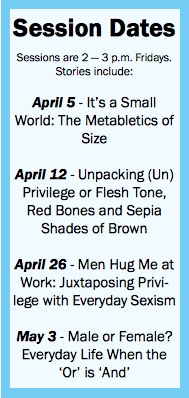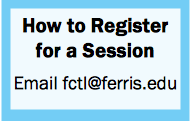The Ferris Faculty Center for Teaching and Learning (FCTL) has created a platform that is sparking new conversations about the different forms of privilege.
Offering discussion sessions titled “Examining the Impact of Privilege,” FCTL designed this event in hopes of helping participants to examine what impact privilege has on their lives, including ones that go unnoticed.
Ferris criminal justice senior Garrett Gresly attended “Reflections on Rural: Why Place Can Be Privilege and How ‘Common Sense’ Understandings Hurt Rural Students” Friday, March 22, because of his experiences in his hometown of Battle Creek. In this first session, the group discussed how the different experiences of rural and urban students can affect their education.
“In my town, there are different communities just within our city, so it was really interesting to see how different everyone’s experience was based on where they were from,” Gresly said. “I think if other students were to come to sessions like this, it could open their perspectives on these types of subjects.”
The sessions feature faculty guest readers and excerpts from the book “Privilege Through the Looking Glass” by sociologist Dr. Patricia Leavy. The stories feature different well-respected writers and scholars reecting on their experiences with privilege.
Ferris faculty coordinator of special projects for FCTL and facilitator of the first session Brooke Moore hopes to increase awareness about the privilege that students experience.
“Throughout our lives, we may experience the benefits or the non-benefits of not being in the privileged group,” Moore said. “Being aware of our privilege can impact how we interact with each other in the future.”
Ferris English, Italian and Russian languages professor Lilia Caserta’s interest was sparked when she saw the word “privilege.”
“We all, to some degree, are privileged, and we also all have our own struggles, whether they be social, historical, et cetera,” Caserta said. “I think these sessions would be useful for students. In today’s discussion alone, we saw that there were so many stereotypes based on where you grew up. We’re all victims of the images that are projected onto us by the media and any other type of information that we’ve received, and I think that any type of education, like questioning our own stereotypes, would help us move forward.”
Although designed for faculty, both students and staff are also welcome. To register for these open conversations, email fctl@nullferris.edu. Space may be limited based on room size. For more information, call (231) 591-3826.


